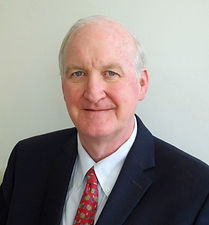
Democracy promotion, broadly defined as foreign policy actions that foster transition to or improvement of democracy in other countries, has been a key component of U.S. foreign policy agenda since the 1970s. The Velvet Revolutions in Eastern Europe, the end of the Cold War, and more recently the Color Revolutions in the former Soviet Republics and in the Middle East provided fertile grounds for various U.S. democracy promotion efforts. Yet the challenges that emerged alongside democratic transitions, such as instability, populism, extremism, anti-Western and anti-democratic sentiments and sectarian rivalries lead many experts, as well as the current administration, to question whether the U.S. should continue to make democracy promotion its foreign policy priority.

Anne Applebaum is a columnist for The Washington Post and a Pulitzer-prize winning historian. She is also Professor of Practice at the London School of Economics’s Institute of Global Affairs where she runs Arena, a program on disinformation and 21st century propaganda.
Formerly a member of the Washington Post editorial board, she has also worked as the Foreign and Deputy Editor of the Spectator magazine in London, as the Political Editor of the Evening Standard, and as a columnist at Slate and at several British newspapers, including the Daily and Sunday Telegraphs. From 1988-1991 she covered the collapse of communism as the Warsaw correspondent of the Economist magazine and the Independent newspaper.
Her newest book, Red Famine: Stalin’s War on Ukraine was published in October 2017. Her previous books include Iron Curtain: The Crushing of Eastern Europe, 1944-1956, which describes the imposition of Soviet totalitarianism in Central Europe after the Second World War. Iron Curtain won the 2012 Cundill Prize for Historical Literature and the Duke of Westminster Medal.
She is also the author of Gulag: A History, which narrates the history of the Soviet concentration camps system and describes daily life in the camps, making extensive use of recently opened Russian archives as well as memoirs and interviews. Gulag won the Pulitzer Prize for non-fiction in 2004.
Anne Applebaum was born in Washington, DC in 1964. After graduating from Yale University, she was a Marshall Scholar at the LSE and St. Antony’s College, Oxford. Her husband, Radoslaw Sikorski, is a Polish politician and writer. They have two children, Alexander and Tadeusz.





